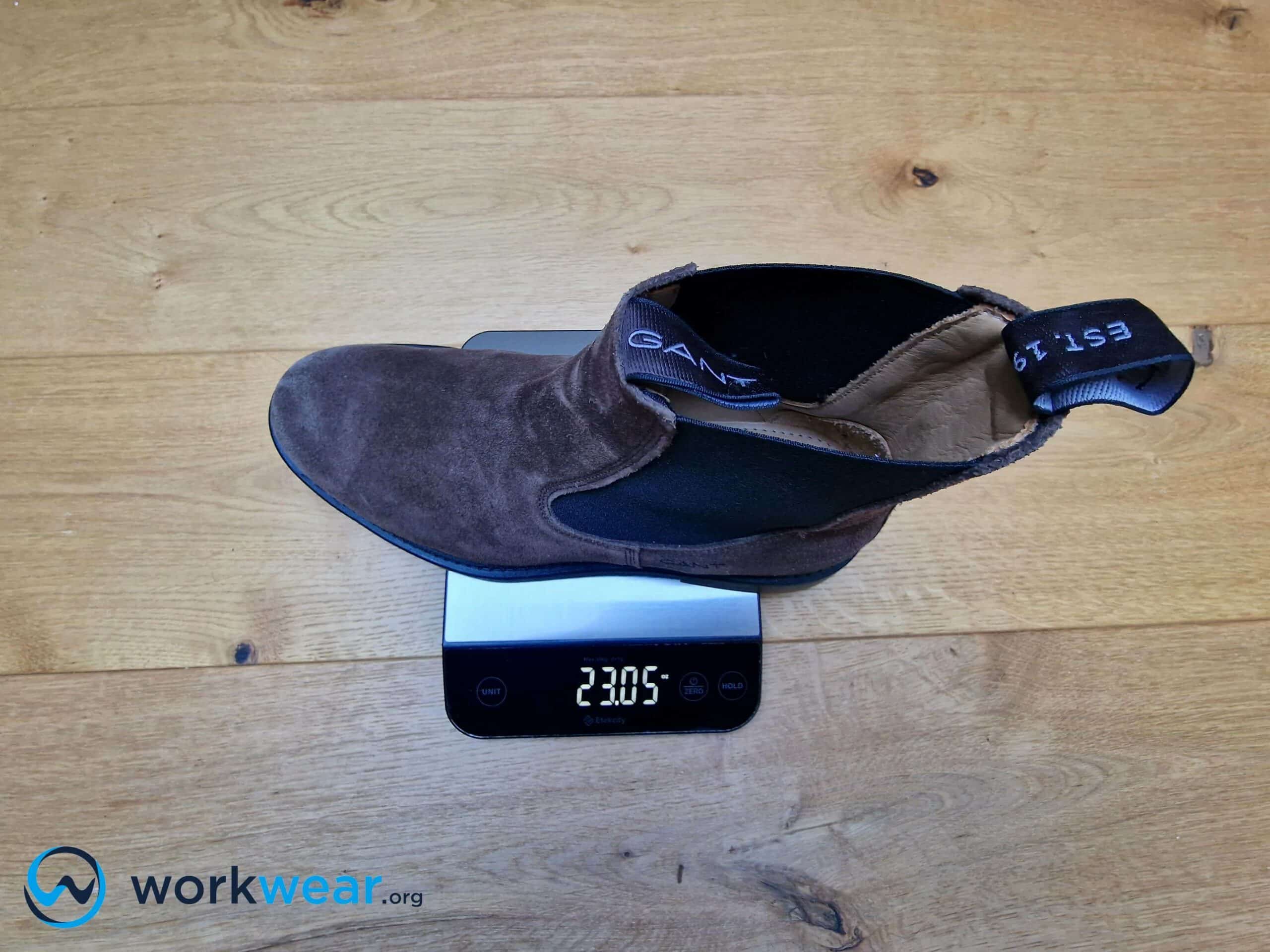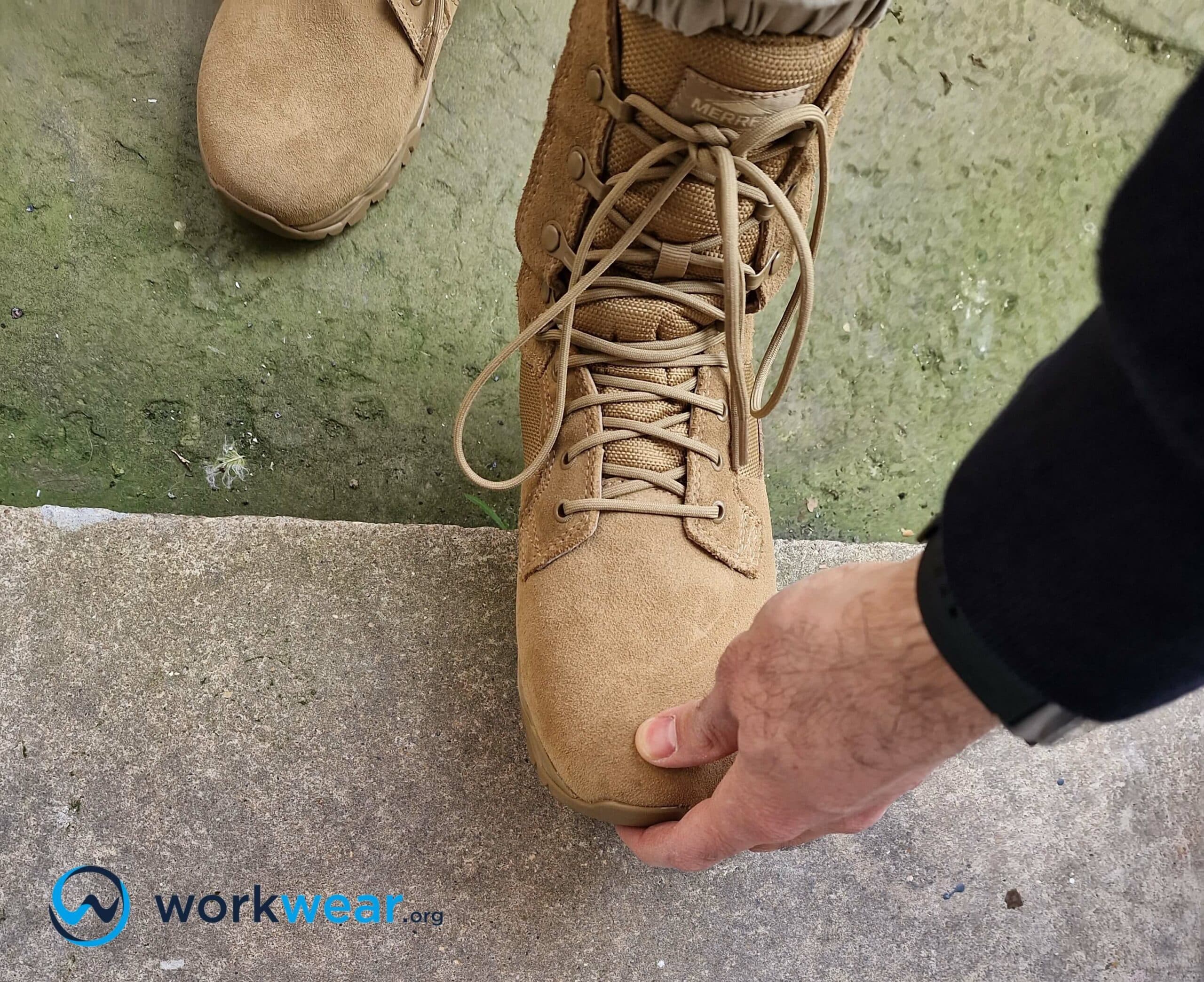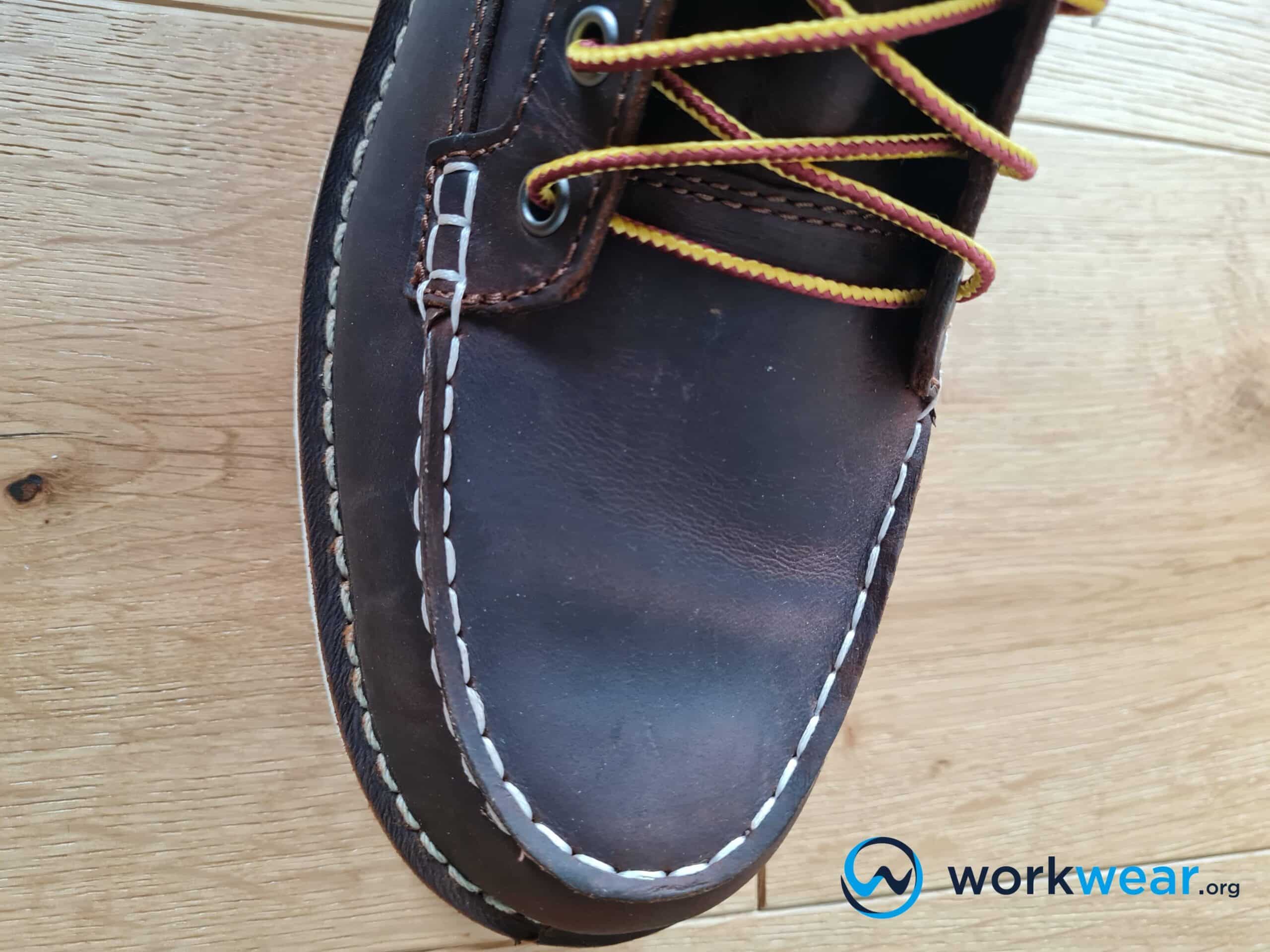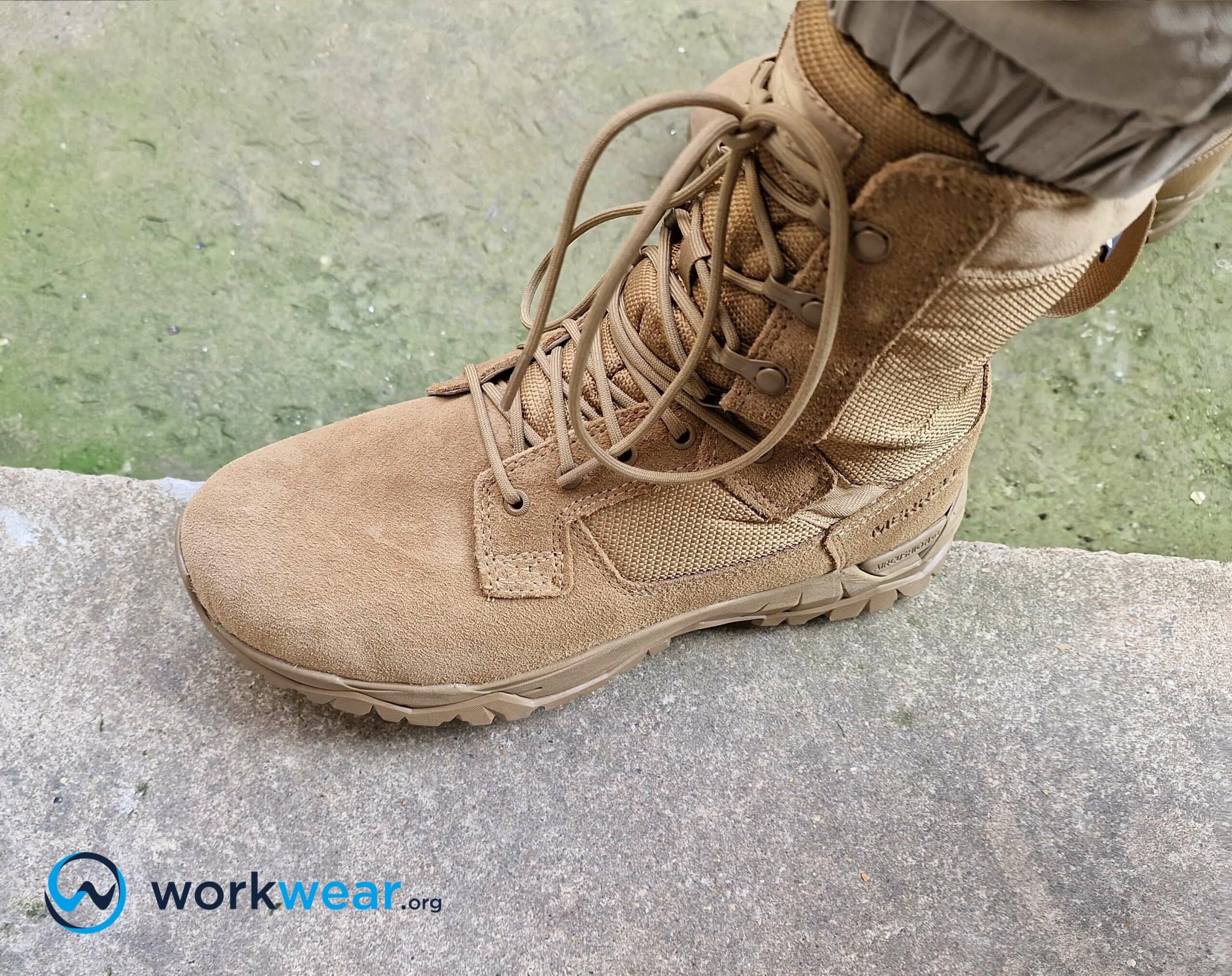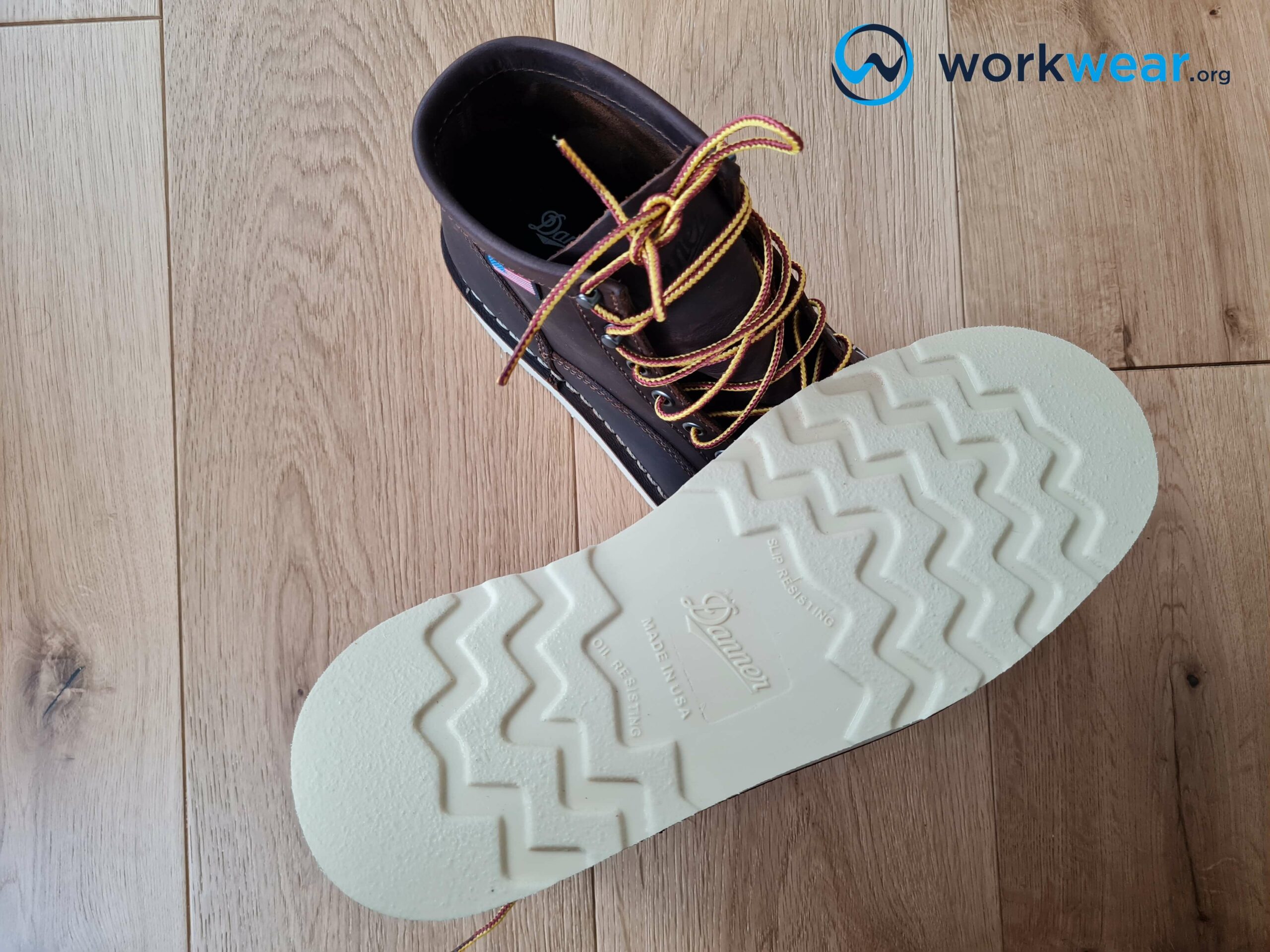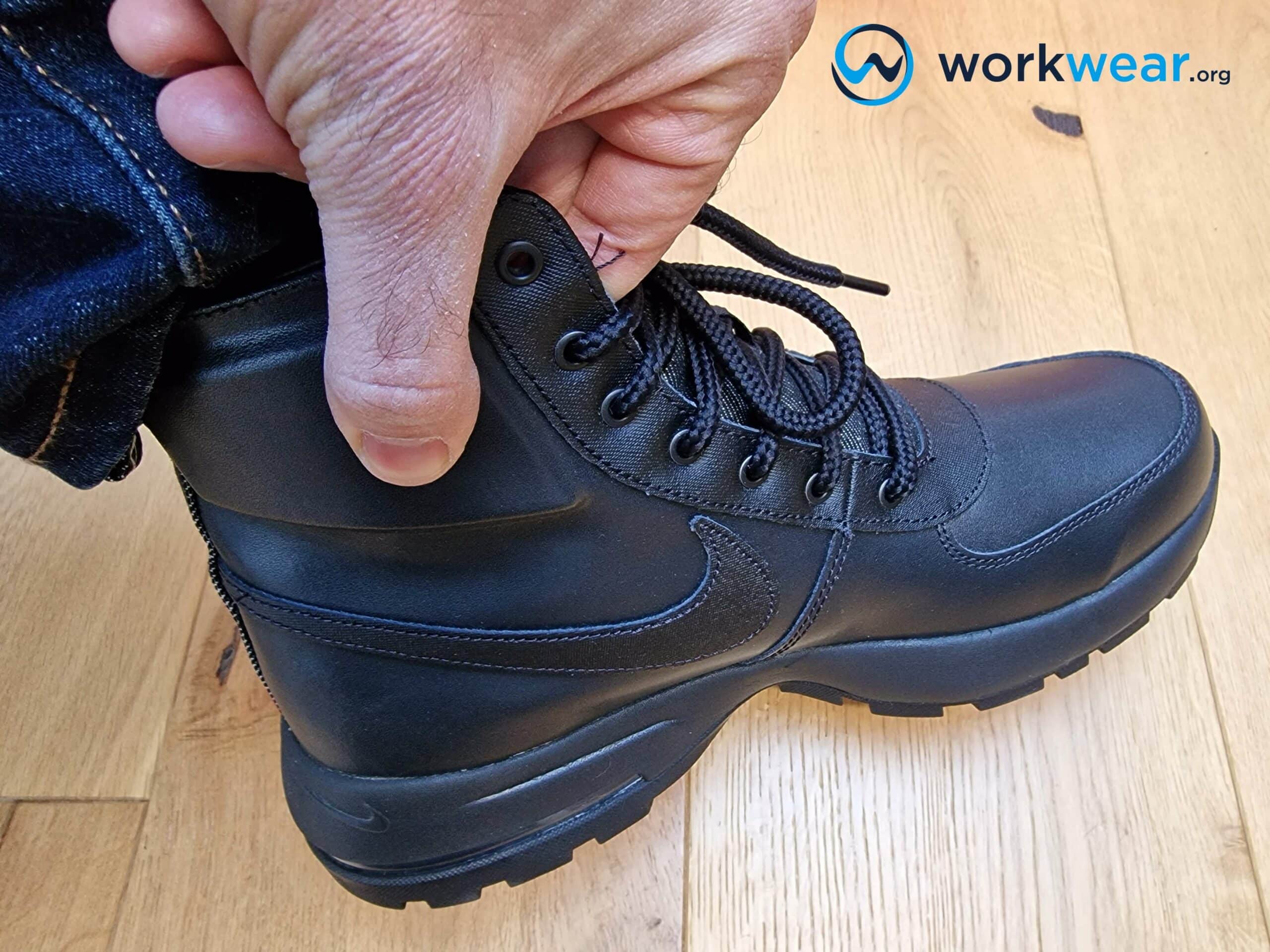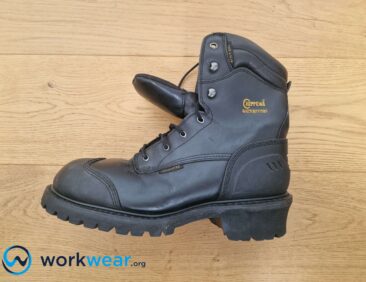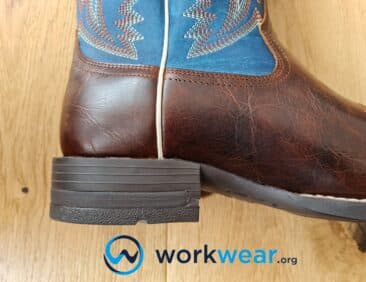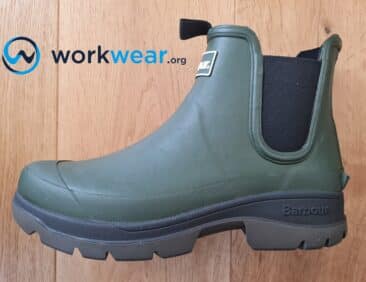Jobs that Require Soft Toe Boots
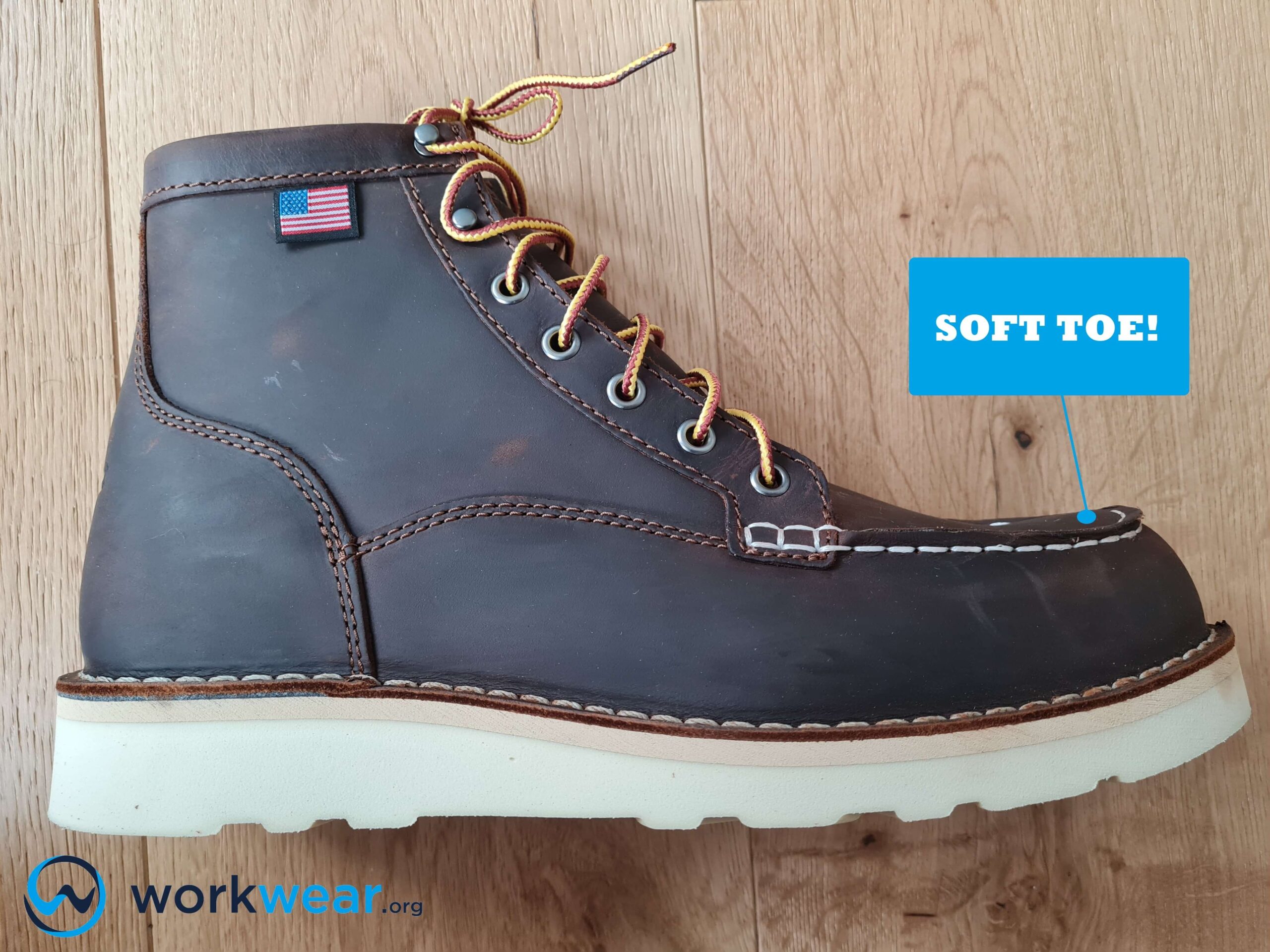
Work boots protect the feet against different safety hazards, but they don’t always need safety toes to provide superior protection and performance.
As their name suggests, soft-toe work boots have soft-toe sections because they are not made rigid by metallic or nonmetallic safety toes. The absence of safety toe caps makes these boots unsuitable for hazardous work environments where there are risks of heavy items falling and causing injuries. However, even if they don’t offer enhanced toe protection, soft-toe boots are still ideal for specific jobs that don’t require protective toe caps. This is especially true for professions that involve walking or standing for long hours, which will benefit from work boots with more comfortable qualities. This article will look at the jobs for which soft-toe boots are ideal.
Key Takeaways
Soft-toe boots are ideal for jobs that are not exposed to hazardous environments where heavy items can roll or fall onto the feet. They’re generally more lightweight than safety toe boots and have roomier and comfier toe boxes with more flexible forefoot areas. They also won’t trigger metal detectors, offer ankle support, and often have enhanced features.
Soft-toe boots are ideal for chefs and cooks, and food service staff who work on their feet all day preparing and serving food. They’re also great for retail sales personnel who can benefit from strong ankle support and comfortably lightweight designs.
Soft-toe work boots suit military personnel and security guards who need comfortable, lightweight footwear to support their agile movements while on duty. Without heavy toe caps, these boots work well for nurses who need to move quickly to respond to medical emergencies.
Boots with soft toes work well for electricians and architects who don’t need safety toe boots, as their jobs don’t involve direct exposure to impact or compression hazards. However, these jobs need ankle support and coverage offered by soft-toe boots.
Soft-toe work boots are ideal for gardeners and mail carriers who need lightweight, flexible boots to help them walk and move more efficiently in different outdoor conditions.
Advantages of Soft Toe Boots
More Lightweight than Safety Toe Boots
Soft-toe boots are typically much lighter than safety-toe boots.
The protective toe caps that are fitted in add extra weight to safety toe work boots, whether made of metallic (such as steel) or nonmetallic (such as carbon fiber) materials. With their reduced weight profile, soft-toe boots are more comfortable for long periods since they don’t pull down the feet with unwelcome bulk.
Comfortable Toe Area
Soft-toe work boots don’t have rigid protective toe caps. While this reduces toe protection against impact and compression, it also keeps the toes box soft enough to deliver better comfort.
Without hard toe caps that can dig into the toes, walking is more comfortable even for long periods when wearing soft-toe boots.
More Space for the Toes
Typically, soft-toe boots have more spacious toe boxes than safety-toe boots.
The metal or nonmetal safety toe caps can add bulk to the boots’ toe boxes, which can painfully pinch the toes. Soft-toe boots leave enough room for the toes to wiggle comfortably when needed to prevent a tired feeling better, especially standing or walking all day.
Do Not Trigger Metal Detectors
Soft-toe boots that don’t have metal parts will not accidentally set off metal detectors like steel-toe boots.
Without any metal components, soft-toe boots are suitable for workers who do their jobs in areas that have metal detectors around, such as those who work in airports, courtrooms, and other areas that have heightened security.
More Flexible Forefoot
Soft-toe boots allow the feet to flex naturally without stiff components that can hamper natural motion, especially on the forefoot area.
These boots don’t have strict toe caps that can limit movements, so they easily adapt to every step comfortably.
Strong Ankle Support
Soft-toe work boots offer better ankle support than work shoes.
The higher shaft helps keep the ankles in stable positions, protecting them from accidentally twisting while stepping sideways or when walking on tricky ground conditions that may be present in certain work areas.
Jobs that are Ideal for Soft Toe Boots
Retail Sales Personnel
Those who work in retail sales spend most of their days on their feet while catering to customers’ needs. These professionals will benefit from soft-toe boots that provide enhanced ankle support, enabling more stable walking even on uneven floors without compromising comfort.
These boots don’t have bulky toe caps, so sales staff can continue walking around the store without dragging heavy footwear all day.
They also have more room to accommodate the toes’ movement to prevent cramping, especially after staying upright for long hours.
Military Service Members
Military personnel can face dangerous situations requiring quick response movements.
Soft-toe boots provide ample coverage to protect the feet against the elements but don’t have the bulky feel of safety-toe boots. Without heavy toe caps, those in the military can move much easier in soft-toe boots.
These boots offer increased ankle support, helping make steps more stable across uneven or slippery terrains that need to be navigated while on active duty.
The soft toe design leaves enough space for comfortable toe wiggling, with the flexibility needed to help military personnel walk without restricting their natural agility.
Electricians
Electricians will benefit from using soft-toe boots that don’t have metallic components built in.
The nonmetallic structure does not conduct electricity, helping reduce the risk of electric shock for electricians who often work around electrically-charged objects.
The flexibility of soft-toe boots also allows electricians to walk up and down ladders easily and without dragging along an uncomfortable, hefty pair of work boots. In addition, the strong ankle support offered by soft-toe boots makes it easier for electricians to walk on unstable while installing wirings without compromising a stable gait.
Security Guards
Security guards often go on duty in areas with metal detectors as part of security measures.
The nonmetallic design of soft-toe boots doesn’t accidentally trigger metal sensors.
This allows security guards to conduct safety checks and move around secured areas without triggering the alarms. For these professionals, soft-toe boots are ideal because of the increased ankle support needed to walk steadily over different floor conditions. The flexible toe area of these boots also enables security personnel to move quickly without rigid parts that can dig painfully into the toes and can hamper mobility.
Food Service Staff
Food service staff spend most of their shift on their feet, so wearing comfortable footwear is necessary.
Soft-toe boots with lightweight designs support the feet without the extra weight, allowing service personnel to walk comfortably for much longer.
The enhanced ankle support helps stabilize the workers’ footing as they navigate variable floor conditions. With soft-toe boots on, food service staff can easily get the food from slippery kitchens and go to the smooth floors of the dining area while enjoying stable steps.
Gardeners
Gardeners will find soft-toe work boots useful while working in muddy or wet gardens, where the boots’ strong ankle support will come in handy.
Walking on tricky surfaces is made much easier and safer, thanks to the boots’ supportive structure offering more coverage than shoes with lower heights.
The flexible forefoot area of soft-toe boots makes kneeling comfier and a lot easier to do than wearing steel-toe boots that can dig painfully into the toes. Soft-toe boots may also have enhanced features, including waterproofing and strong traction, that benefit gardeners.
Mail Carriers
Mail carriers deliver documents, mail, and parcels to homes and various establishments all day. They spend most of the day walking, so soft-toe boots are ideal because they’re lightweight enough not to cause discomfort.
Mail carriers may need to go over challenging ground conditions to reach certain delivery addresses, so they’ll benefit from using soft-toe boots that offer strong ankle support.
The boots’ design help stabilize the ankle, so it doesn’t twist accidentally while walking on slippery or uneven ground. The nonmetallic design of soft-toe boots also helps mail carriers pass secure areas (on their way to deliver items) without triggering the sensors unnecessarily.
Personal Testing Experience
We’re sharing our experiences while using two soft-toe boots with remarkable features. The Merrell Moab 2 8-Inch Tactical Response Waterproof Boot has a flexible sole and an exclusive air-cushioned heel that delivers superb comfort throughout the day. Its TC5+ outsole came with exceptional traction that conquered the trickiest surfaces without compromising a stable walking experience. The boot’s upper and inner lining is waterproof, but the zipper doesn’t look sturdy and may only last for a while. On the other hand, the Timberland 6-Inch Premium Waterproof Boot features the classic Timberland design that’s often showcased in more stylish models. Its premium construction includes a waterproof, seam-sealed design to block liquids and keep the feet dry all day. The rubber outsole has deep treads that firmly grip the ground to prevent slipping in challenging ground conditions. In addition, this boot has a cushioned leather collar and Anti-Fatigue technology, although it’s difficult to slip into and remove.
Conclusion
Soft-toe boots may not have the superior toe protection that’s offered by safety toe boots, but they can still protect the feet while keeping them comfortable at the same time. High-quality soft-toe work boots often come with enhanced features that improve performance without compromising ease of use and mobility while on the job. These boots are ideal for jobs that are done in non-hazardous environments and don’t require footwear with protective toe caps. Soft-toe boots suit various jobs, including nurses, retail sales personnel, chefs and cooks, electricians, military service members, security guards, food service staff, gardeners, mail carriers, and architects.
FAQs
- Can soft-toe boots protect the feet?
- The protection doesn’t extend to compression and impact hazards. Soft-toe boots can be enhanced with other safety features, such as electrical hazard protection, slip resistance, and puncture resistance, that protect against other safety risks.
- Do all soft-toe boots feel lightweight?
- Generally, they do – but there are some exceptions. Soft-toe boots with very thick rubber soles may feel heavier and bulkier than other boots that don’t have protective toe caps.
- Can soft-toe work boots be used in non-work settings?
- It depends on the wearer’s preferences. Some soft-toe boots look stylish and work well with casual outfits, although some may look too industrial to be considered for leisure use.
- Are soft-toe boots more comfortable than safety-toe boots?
- It depends on the boots’ construction. Although soft-toe boots are generally more lightweight than those with safety-toe caps, comfort enhancements – including generous cushioning and shock-absorbing soles – can be built into soft-toe and safety-toe boots to make them superbly (and equally) comfortable.
